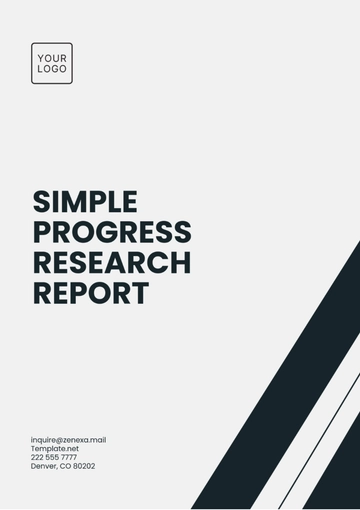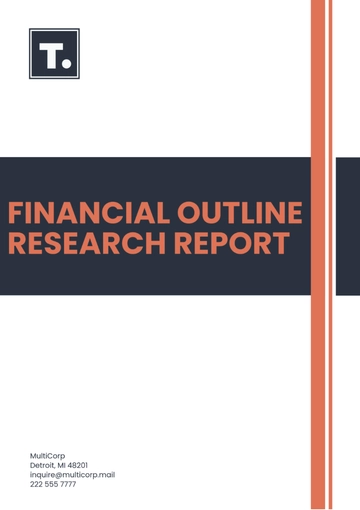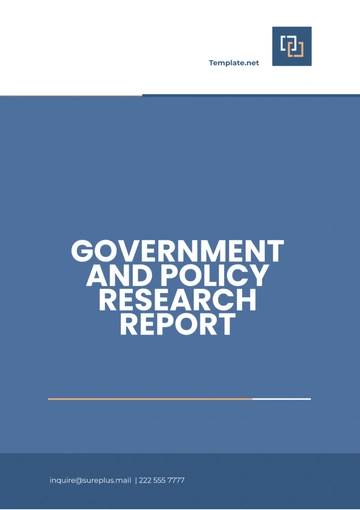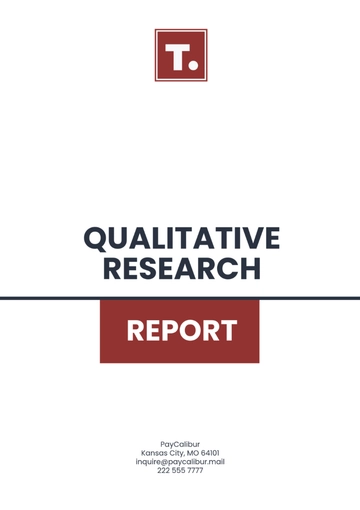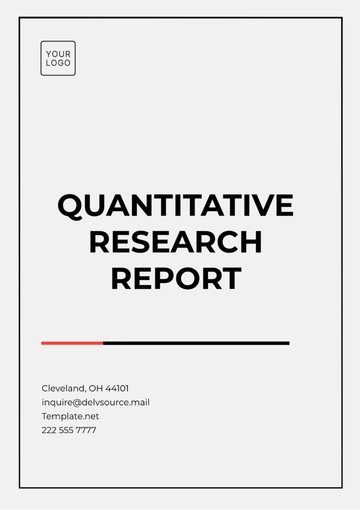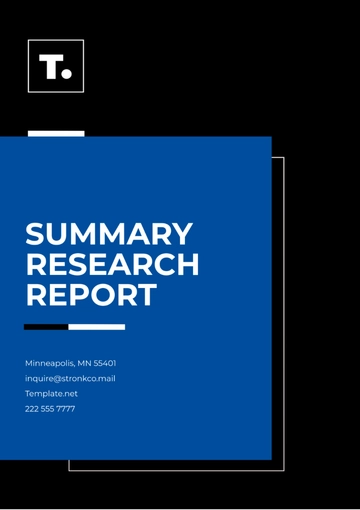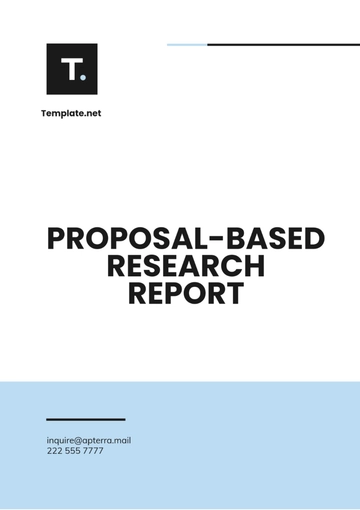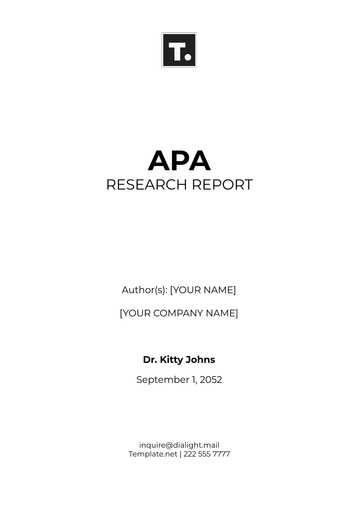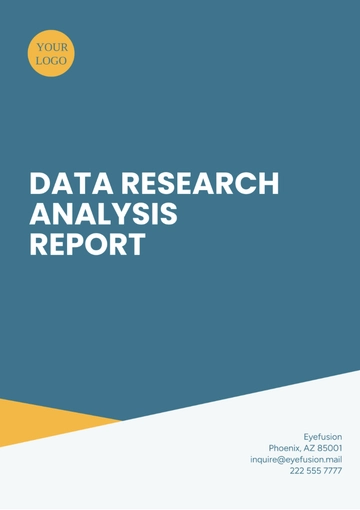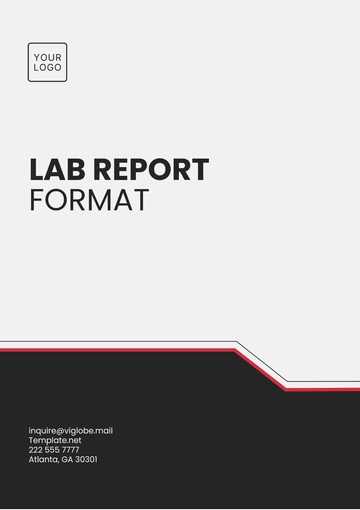Free Financial Outline Research Report
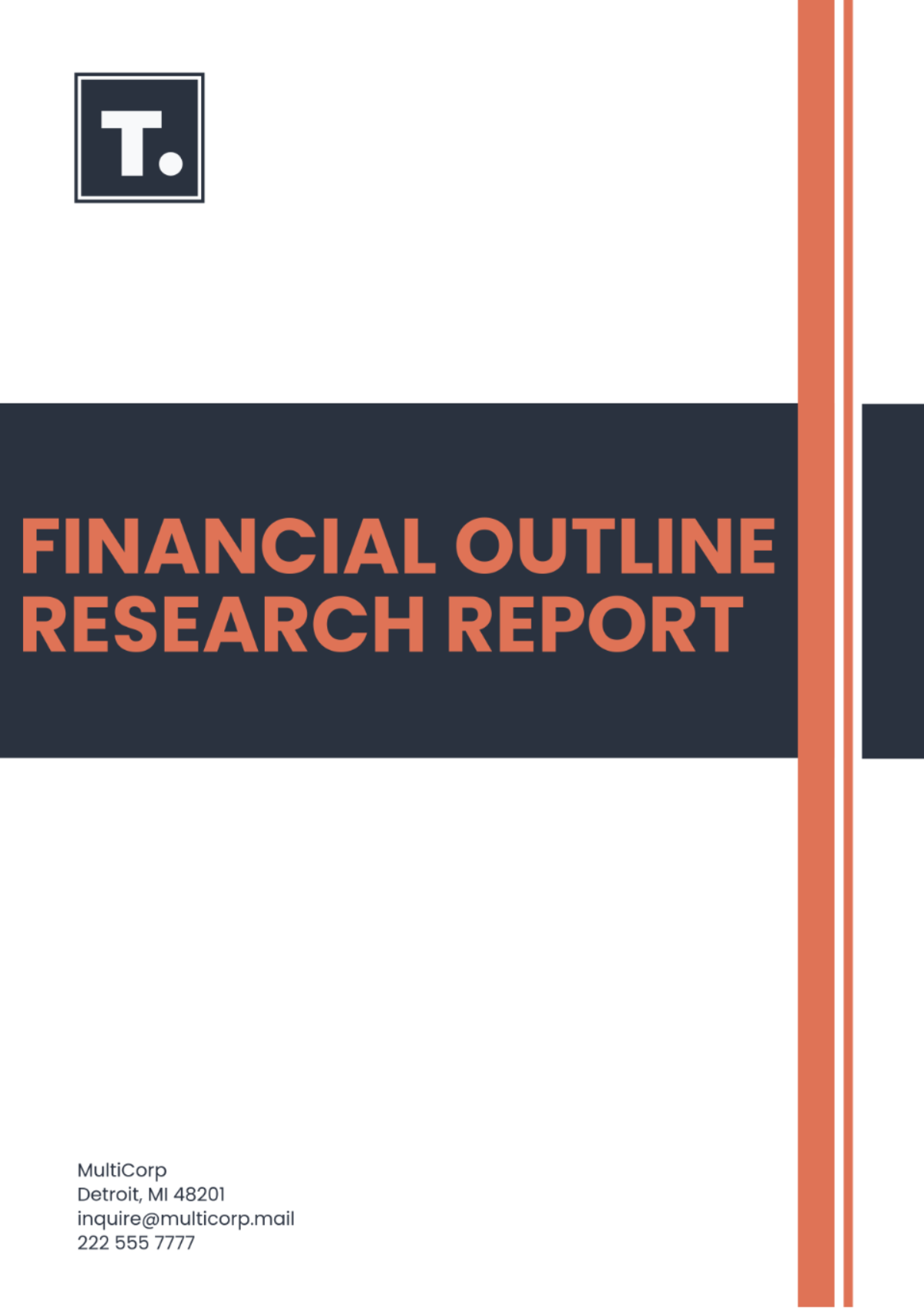
Prepared By: [Your Name]
Date: January 5, 2050
I. Define the Purpose of the Report
Objective: Clearly outline the aim of the report. Are you assessing the feasibility of a project, analyzing investment opportunities, or proposing a budget for research funding?
Audience: Identify who will read the report (e.g., investors, stakeholders, or regulatory bodies) to tailor the content accordingly.
II. Create the Executive Summary
Overview: Summarize the key findings, conclusions, and recommendations of the report.
Length: Aim for 1-2 paragraphs that encapsulate the essence of the financial analysis without going into excessive detail.
III. Write the Introduction
Background Information: Provide context for the research project, including its significance and objectives.
Scope of the Report: Specify what aspects of the financial analysis will be covered.
IV. Outline the Methodology
Data Sources: Describe the sources of financial data (e.g., historical financial reports, market research, etc.).
Analysis Techniques: Explain the methods used for financial analysis (e.g., statistical analysis, forecasting models).
V. Conduct and Present Financial Analysis
5.1: Detail the Budget
Itemized Costs: List all anticipated costs (e.g., personnel, materials, equipment).
Revenue Projections: Provide estimated income or funding sources.
Break-Even Analysis: Calculate when the project will become financially viable.
5.2: Risk Assessment
Identify Risks: Identify financial risks (e.g., market changes, funding gaps).
Mitigation Strategies: Describe how these risks can be minimized.
VI. Conclude with Findings and Recommendations
Summary of Key Findings: Recap the major financial insights gained from the analysis.
Actionable Recommendations: Suggest next steps based on the findings (e.g., whether to proceed with the project, seek additional funding, etc.).
VII. Include Appendices
Supporting Documents: Add detailed financial statements, charts, graphs, or any additional data that support the analysis.
References: List any sources used to gather data for the report.
VIII. Review and Edit the Report
Clarity and Conciseness: Ensure the report is clear and to the point, avoiding unnecessary jargon.
Proofreading: Check for grammatical errors and ensure all financial data is accurate.
- 100% Customizable, free editor
- Access 1 Million+ Templates, photo’s & graphics
- Download or share as a template
- Click and replace photos, graphics, text, backgrounds
- Resize, crop, AI write & more
- Access advanced editor
Develop a clear financial overview with Template.net's Financial Outline Research Report Template. This editable and customizable template offers dedicated sections for financial analyses, forecasts, and key metrics, ideal for financial analysts or business researchers. Its intuitive layout organizes detailed data for impactful reporting. Editable in our Ai Editor Tool, this template helps professionals present financial research in a structured, clear format.
You may also like
- Sales Report
- Daily Report
- Project Report
- Business Report
- Weekly Report
- Incident Report
- Annual Report
- Report Layout
- Report Design
- Progress Report
- Marketing Report
- Company Report
- Monthly Report
- Audit Report
- Status Report
- School Report
- Reports Hr
- Management Report
- Project Status Report
- Handover Report
- Health And Safety Report
- Restaurant Report
- Construction Report
- Research Report
- Evaluation Report
- Investigation Report
- Employee Report
- Advertising Report
- Weekly Status Report
- Project Management Report
- Finance Report
- Service Report
- Technical Report
- Meeting Report
- Quarterly Report
- Inspection Report
- Medical Report
- Test Report
- Summary Report
- Inventory Report
- Valuation Report
- Operations Report
- Payroll Report
- Training Report
- Job Report
- Case Report
- Performance Report
- Board Report
- Internal Audit Report
- Student Report
- Monthly Management Report
- Small Business Report
- Accident Report
- Call Center Report
- Activity Report
- IT and Software Report
- Internship Report
- Visit Report
- Product Report
- Book Report
- Property Report
- Recruitment Report
- University Report
- Event Report
- SEO Report
- Conference Report
- Narrative Report
- Nursing Home Report
- Preschool Report
- Call Report
- Customer Report
- Employee Incident Report
- Accomplishment Report
- Social Media Report
- Work From Home Report
- Security Report
- Damage Report
- Quality Report
- Internal Report
- Nurse Report
- Real Estate Report
- Hotel Report
- Equipment Report
- Credit Report
- Field Report
- Non Profit Report
- Maintenance Report
- News Report
- Survey Report
- Executive Report
- Law Firm Report
- Advertising Agency Report
- Interior Design Report
- Travel Agency Report
- Stock Report
- Salon Report
- Bug Report
- Workplace Report
- Action Report
- Investor Report
- Cleaning Services Report
- Consulting Report
- Freelancer Report
- Site Visit Report
- Trip Report
- Classroom Observation Report
- Vehicle Report
- Final Report
- Software Report


